#13 Annankoil’s Resilient Fisherwomen
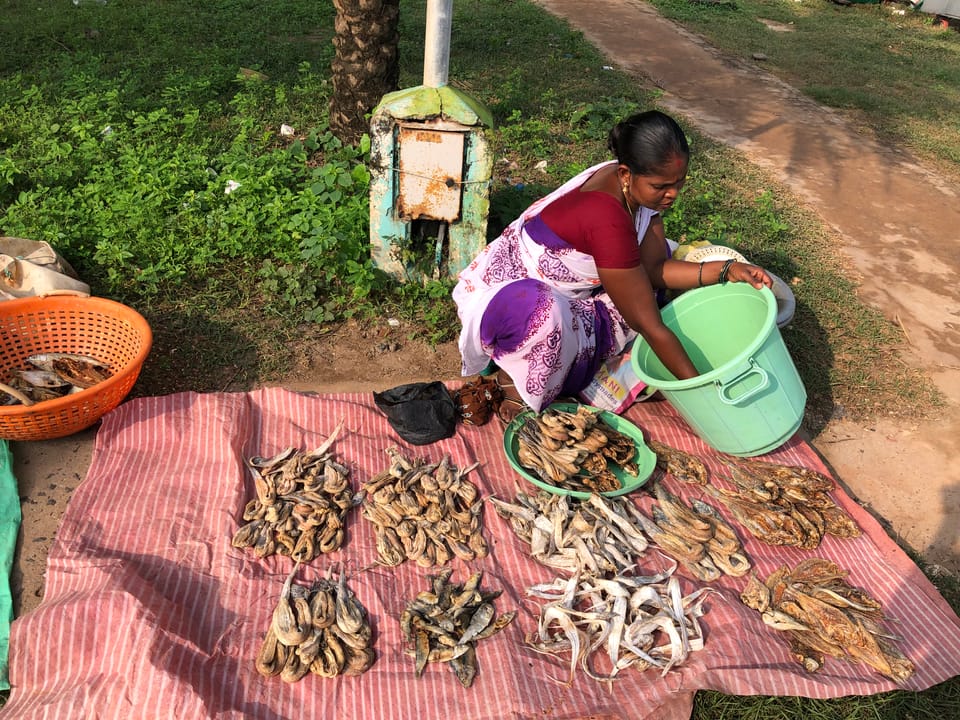
By Sara Grambs
This is a series on how the modernisation of harbours in India is changing the lives of fishers in relation to the politics of their livelihood, and overall well-being. This story, written by guest author Sara Grambs, a social science researcher at the University of Amsterdam, follows the fisherwomen of Annankoil, a fishing harbour in Cuddalore district of Tamil Nadu. They speak about their lives, the precarity of their profession, the economics of existence, and how the changes at the fish landing center have made things tougher instead of easier.
“You can decide whether you want to be a fresh fish seller or a dry fish seller. I am both. The fisherwomen have a life focused on fish," explains Nithila when introducing the profession of Cuddalore’s fisherwomen. “Fisherwomen buy fish, ice fish, salt fish, dry fish, and sell fish. We go to markets to sell the fish. But in fresh fish and in dry fish, there is not a big difference between what is easier and what is harder.”
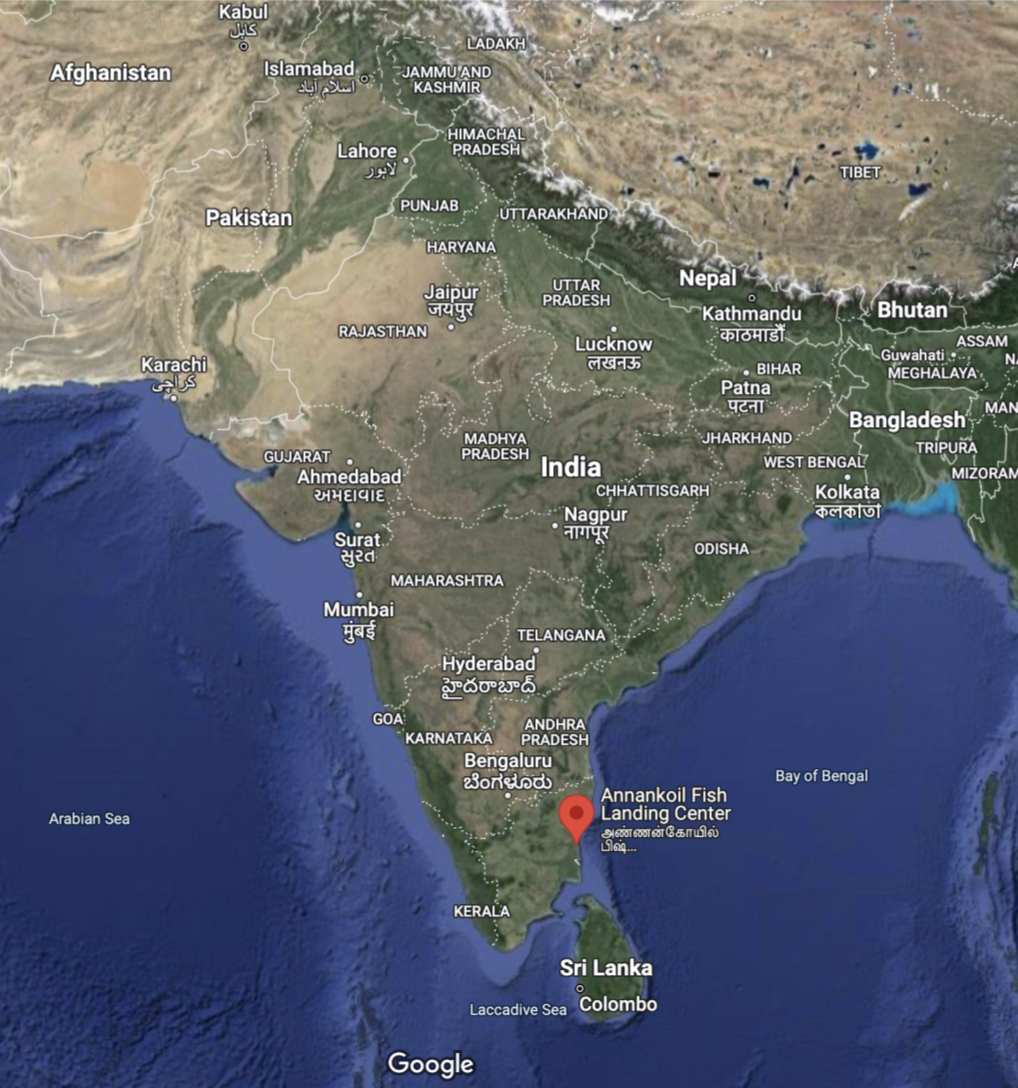
Nithila, a 46-year-old widow residing in the village of Pudhupettai near the town of Parangipettai in Cuddalore district, Tamil Nadu, shoulders the responsibility of providing for her family. With two married daughters and an adult son, she became the sole breadwinner six years ago following the passing of her husband. However, Nithila’s journey in the fish business began much earlier, at the age of 15. Facing economic hardship after her father’s death, Nithila’s family sought additional sources of income to sustain their livelihoods. Coming from a traditional fishing community, the Pattinaver community, Nithila was introduced to the family tradition by her mother. From a young age, she learned the art of selecting the finest catch, a skill honed through years of hands-on experience.

Every morning, Nithila starts her day at 4 AM with a walk to the Annankoil fish landing center. Alongside her fellow fisherwomen, she takes a shortcut through a small forest to avoid the longer route, saving time. After her arrival, she buys high-quality fish from the auction lady and sets up her space. The experienced fisherwoman occupies 1.5 meters in a good position in the harbor. Despite the muddy and dirty ground, Nithila ensures her space looks professional by lining it with a plastic sheet. She then collects ice from the icemaker, a thin but strong elderly man who crushes the ice manually. Carrying the heavy bucket of ice to her stand, Nithila skillfully layers the fish, placing the freshest ones on top. As sales commence, customers from the region arrive on scooters. Regulars head straight to Nithila, while others wander around looking for the best offers. Occasionally, conflicts arise between fisherwomen competing for customers’ attention. Nithila observes, “There is some jealousy between the fisherwomen,” but she stays out of conflicts, maintaining a good reputation by treating everyone kindly. Known for her calm yet serious character, Nithila is respected among her peers at the fish landing center. Despite her focus on work, she enjoys chatting with coworkers and customers over a cup of chai, fostering a sense of community in the busy environment.
At 10 AM, when the sun starts strongly burning the business hours draw to a close, Nithila reflects on the day’s earnings – Rs. 200, a respectable sum. Yet, like many in the fishing community, her income is far from steady. “For example, last week when the weather was so bad, I only earned Rs. 200 in 7 days. You never have a steady income. I had to worry a lot about how we will make it through the next few days, and I couldn’t sleep well.” Despite the uncertainty, Nithila acknowledges the necessity of her job. “When I go to work, I get an income. If I don’t go, I will have no income. No income means no food. That’s why I go there, to have an income.” By the end of the working day, Nithila tends to the remaining fish and buys more ice to preserve them. With the day's catch balancing on her head, she heads back to her village, where she’ll try to sell it to her neighbors or preserve it as dried fish if there are no takers. It is a cycle of resourcefulness that defines life in the fishing community. Every rupee earned is hard-won and appreciated.
Upon returning home, Nithila shifted her focus to providing for herself and her son, Vithun. Despite being a 25-year-old college graduate with a degree in electronics, Vithun has been unable to secure employment since graduation and is therefore unable to contribute to the family’s income. In an attempt to ease the financial burden, Nithila took loans totaling over Rs. 3 lakhs to enlist the help of an agent to find Vithun a job abroad. However, her hopes were crushed when Vithun returned from Qatar empty-handed after failing to secure a job.
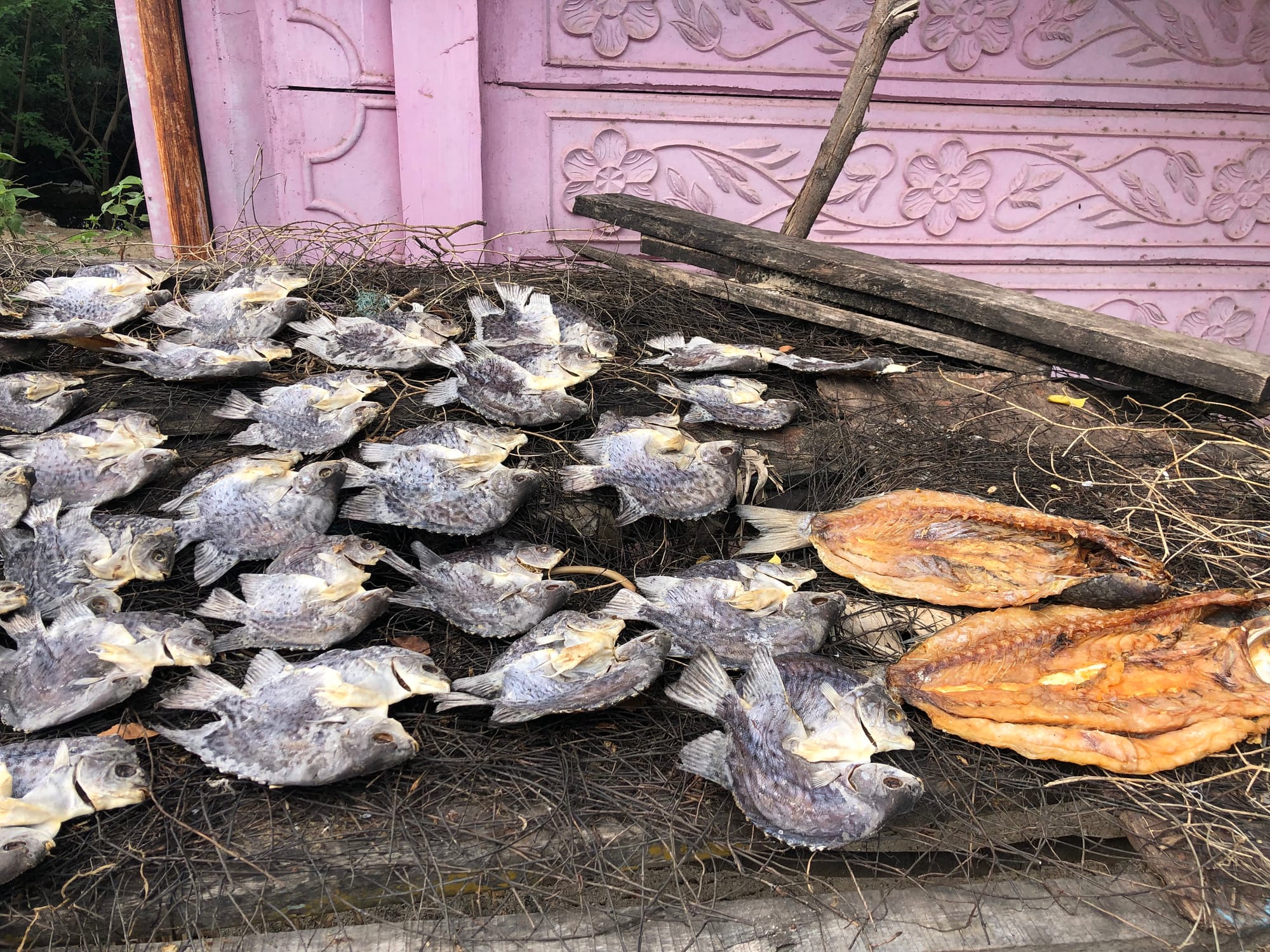
Disappointed by Vithun’s setback, Nithila ponders the growing challenges she faces. “I took out many loans to enable him this opportunity. Now, I have many difficulties in my life. I have a debt of over 15 lakhs. I took out loans to marry my daughters as well.” What was supposed to be a lifeline for the family has only added to their financial hardship, with Vithun unable to fulfill his role as provider. In addition, Nithila is concerned that an unemployed man will not be able to find a wife. Occasionally, Vithun helps the fishermen on the boats and makes a small amount. But he uses the money to drink alcohol with his peers. His mother frowns at this: “My husband used to drink alcohol and now my son is also abusing it. I tried talking to him softly, trying to tell him not to drink so much. But he doesn’t accept what I am saying.”
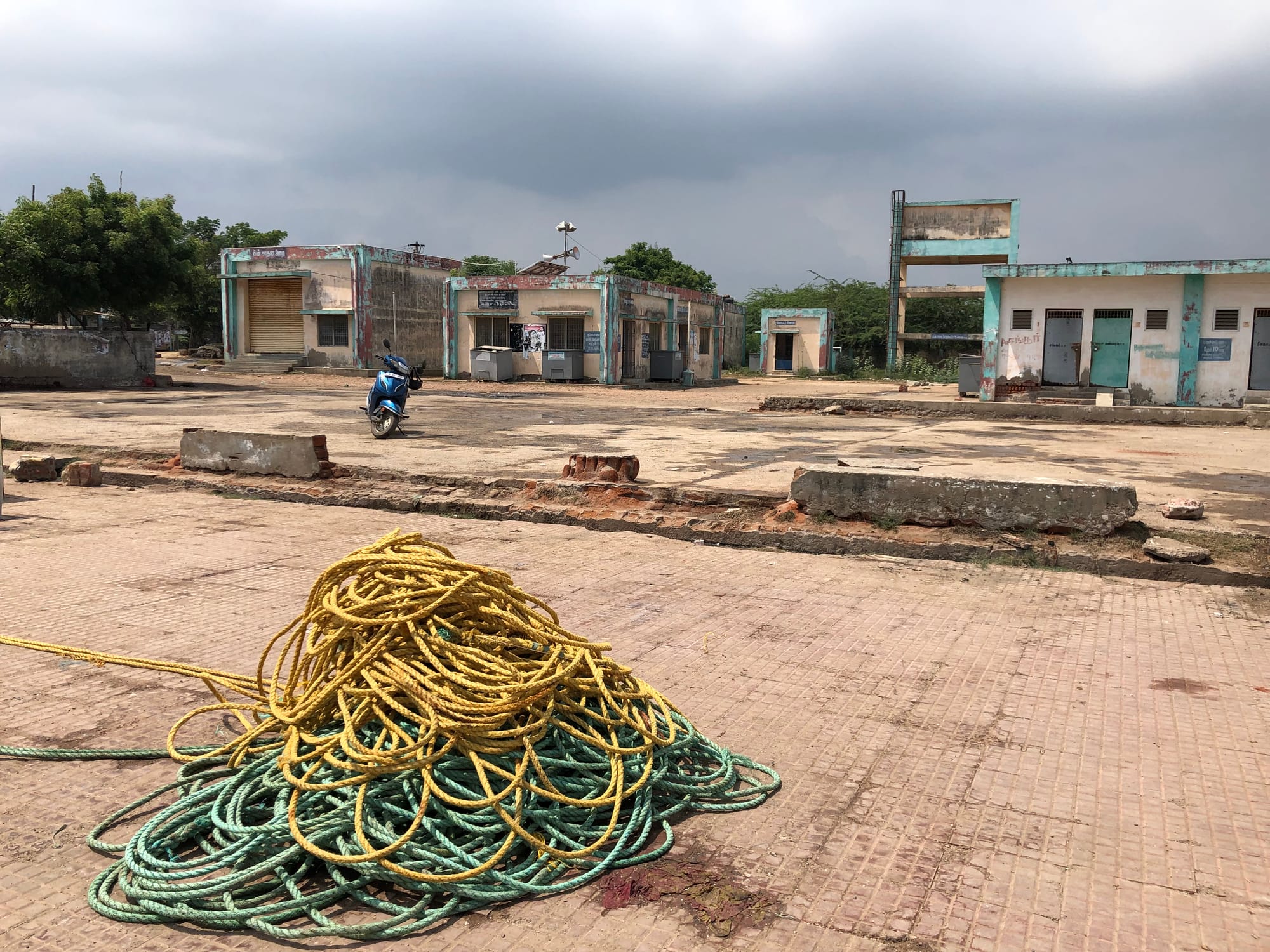
Talking about her daughters, Nithila lights up. She is already a grandmother and when her grandchildren are visiting, she splurges to give them some snacks. Both daughters have received an education, a priority for Nithila and her late husband. They have nursing degrees and are currently housewives. She thought that if she educated her children, they would have a better chance of not working in traditional fishing jobs. Nithila noticed that the boats were not going out as often and the catches were low. “I am very doubtful about the fisheries business. I don’t know if there will even be fish in the future. That’s why I am preparing my children to have a good education and a good job outside of fishing. I don’t want them to do the work that I do because it is too hard, and they are too educated for that.” Despite her aspirations for her children, Nithila still hopes that her son Vithun will contribute to the family’s income by working as a fisherman until he finds alternative employment. But Vithun firmly refuses, citing the exhausting nature and inherent dangers of the profession. His reluctance reflects a broader shift in attitudes toward traditional fishing jobs, as younger generations seek alternatives for safer and more stable livelihoods outside of the fishing industry.
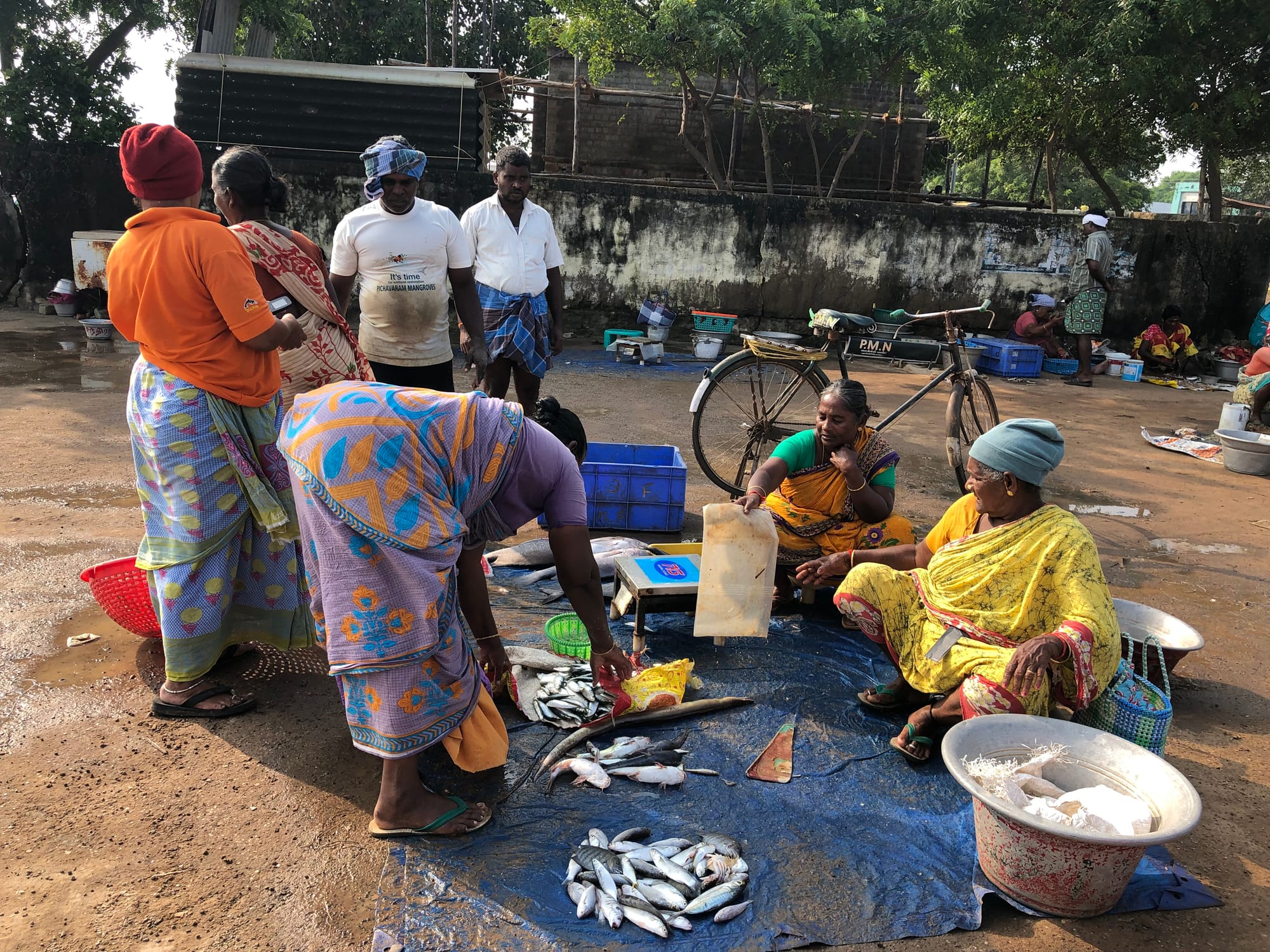
In recent years, the Annankoil fish landing center has undergone significant changes. Since 2022, the number of fisherwomen in the harbor has nearly doubled, rising from about 50 to about 100 women. This surge in numbers can be attributed to several factors, including the rising cost of living, fishermen’s declining incomes due to reduced catches and policy changes such as the banning of the ring-seine fishing method, as well as social issues such as alcoholism or the loss of husbands. Faced with economic pressures and limited alternatives, many women have turned to harbor work as a means of survival. Some start by helping relatives or neighbors cut fish, while others invest their savings to become fresh fish vendors. The growing presence of new fisherwomen, however, has created mixed feelings among the more experienced workers. “Of course, we welcome and support our sisters to work in the harbor if this is what they need to do to sustain their families. They all don’t have enough money," says one of them. A colleague of Nithila shares proudly of how she helped a new fisherwomen find her way around in this profession: “There is a lady from my hometown that I have known for a long time. Her husband died so she was in a bad situation, her income was low, and she was suffering. That time, she was asking me if I have a job for her in the fish landing center. I introduced her to the fish-cutting job. So now she is working with me in the harbor, and she has some income. I feel very good that I was able to help her. Helping is really important. I know what it is like to suffer, so I need to help other people too.” However, others are concerned about the increasing workforce. “So far, the number of fisherwomen has increased. But the number of fish is decreasing, so I don’t know if there will be enough work for everyone. I am afraid that Annankoil will have a full transformation in the future where fisherwomen will not be allowed anymore to work there. This would be bad for us.“
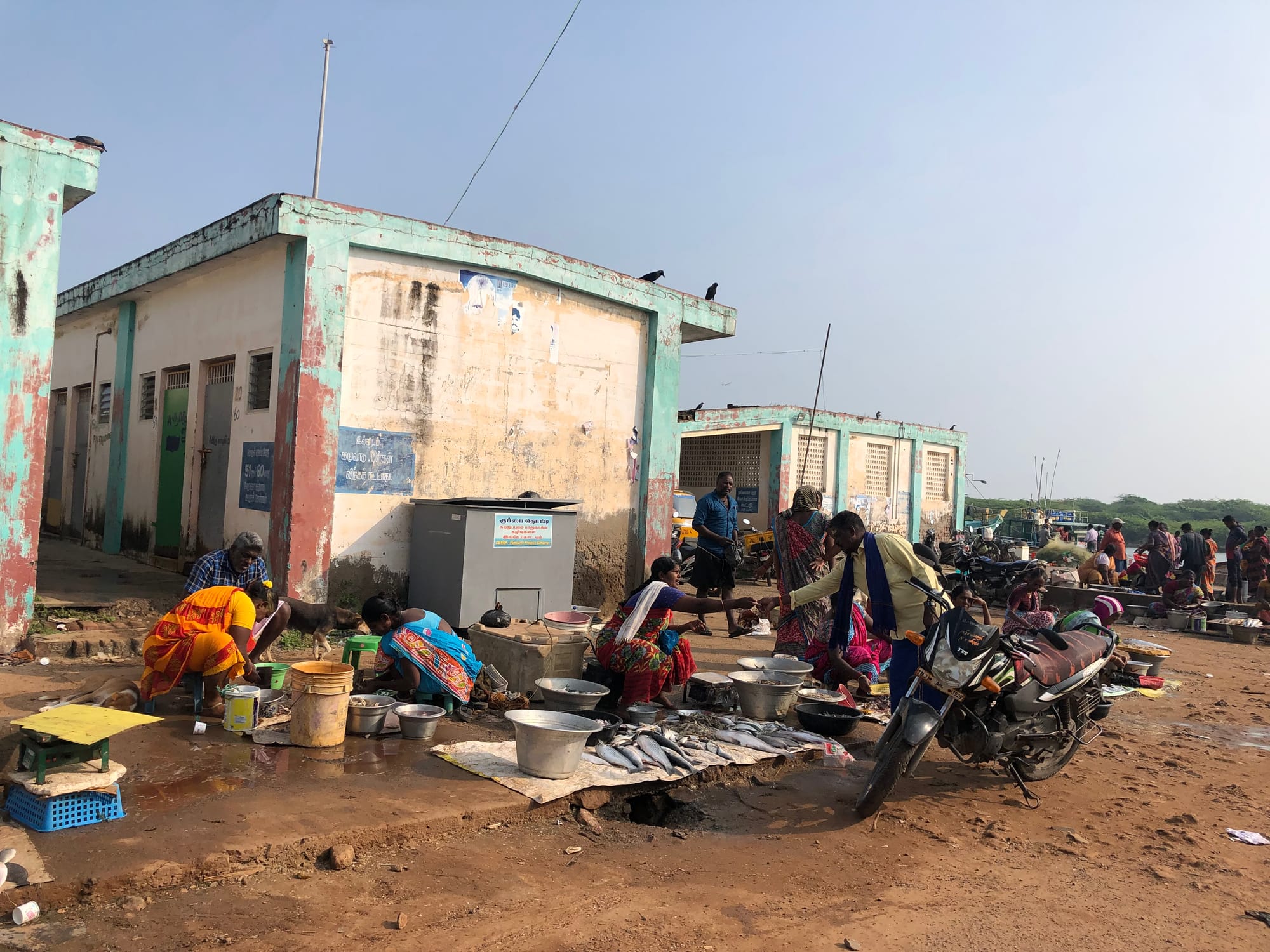
In coastal fishing communities, there is a widespread sense of uncertainty about the future, leaving both fishermen and fisherwomen concerned about what lies ahead. Fishermen, however, have the possibility and access to shape it to some extent. Fisherwomen, on the other side, do not feel like decision-makers are considering their burdens and demands. In their working environment, the fish landing center, there are many ideas among the fisherwomen how it could be improved. Ideas include building a cover or to protect the fisherwomen from the burning sun or the rain. Cementing the floor would mitigate the constant mud and dirt, transforming the space into a more hygienic and suitable environment for sales. Additionally, establishing distinct zones for dried and fresh fish would prevent cross-contamination. The current bathroom facilities serve dual purposes: personal hygiene and freshwater supply. However, they are dirty, and the freshwater source is not functioning properly, compromising both sanitation and basic needs in order to perform the profession. The most pressing issue however is the lack of space. With an increasing number of fisherwomen competing for limited selling areas, tensions and disputes over allocation arise. There is an underlying fear among fisherwomen that government authorities may deem the poorly maintained facility unfit for their use, leading to potential displacement. Reflecting on these concerns, one fisherwoman expresses her apprehension: “I am afraid that they will send us away, that they will tell us to find another place to sell the fish. For us, the Annankoil harbor is a very important place, and it is safe.”
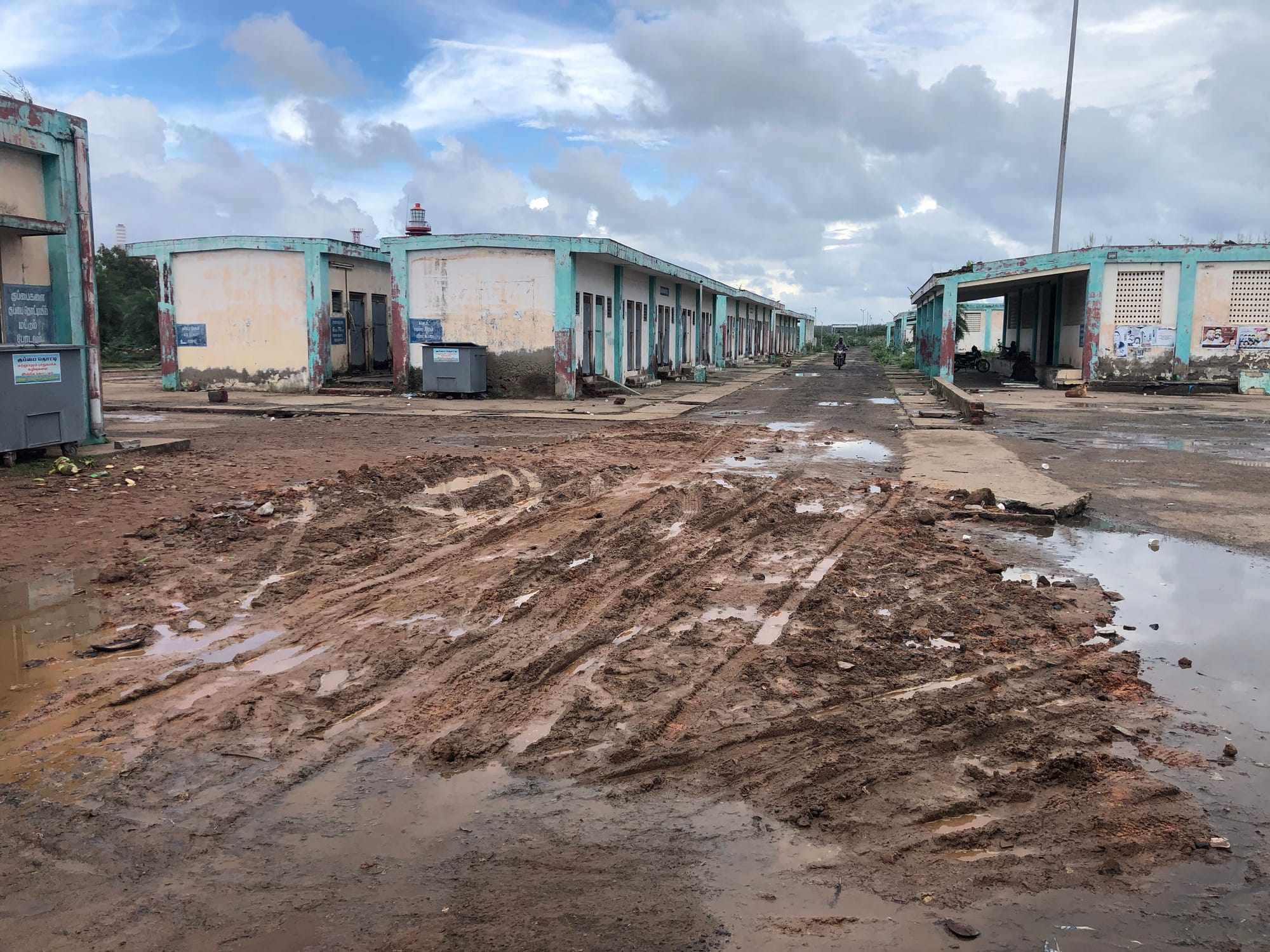
The lack of recognition from the men in their own community leaves fisherwomen feeling unheard and marginalized. This sense of injustice is highlighted by the ongoing construction of the Annankoil Fish Landing Center. As construction progresses and the harbor expands, the fisherwomen see an opportunity to use the new space to sun-dry fish. However, their hopes are quickly dashed when a member of the harbor committee forbids them from doing so. This situation has made some fisherwomen bitter about the restrictions at the harbor. They argue that the harbor already has all the necessary infrastructure, including enough space and even a building with a roof. However, they claim, the harbor committee is not managing these resources effectively: “Everything that the fisherwomen demand, is already there. But the harbor committee does not allow the women to use it because they say the women would not use it properly.”
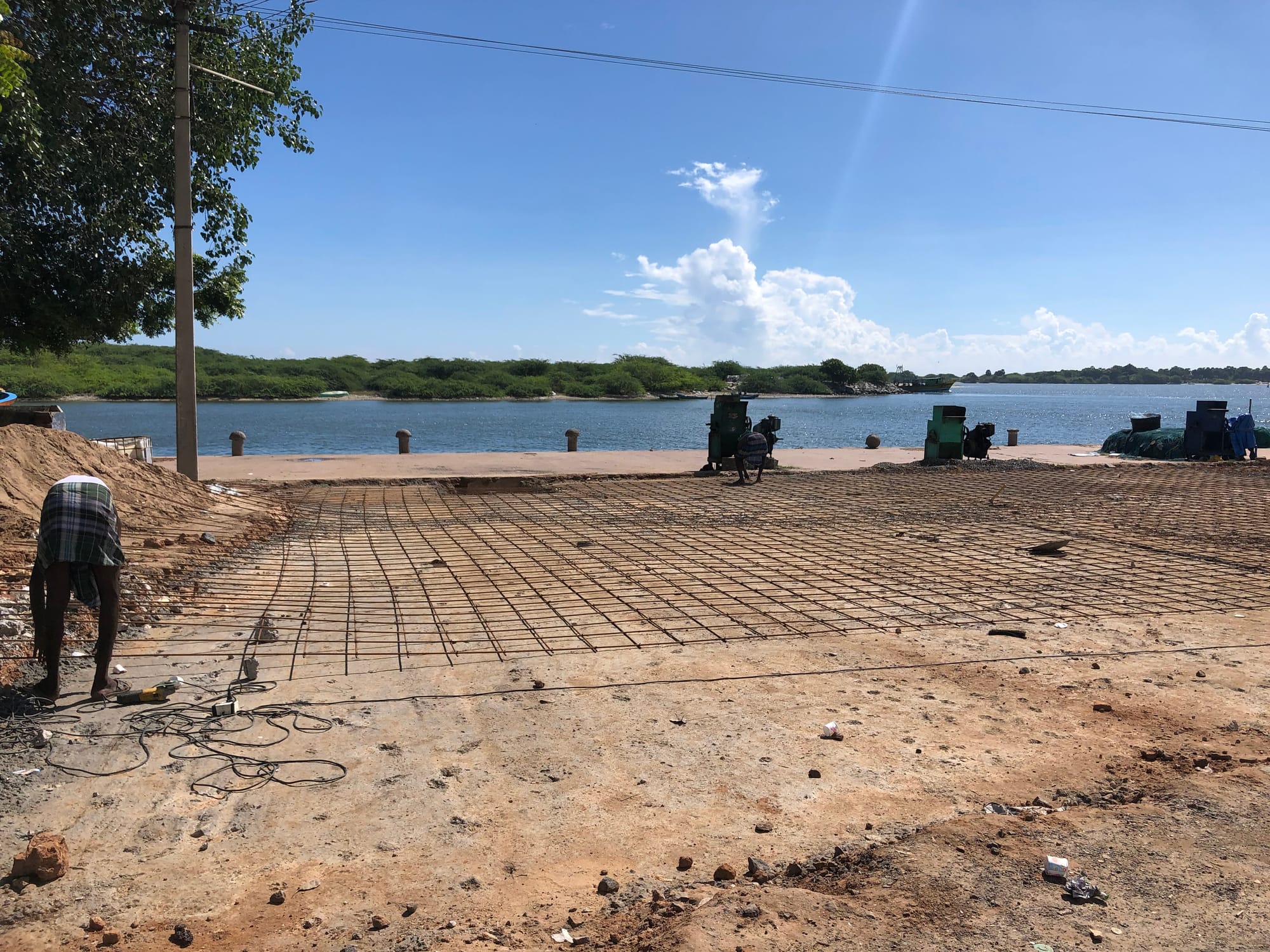
The government’s lack of recognition of the challenges faced by fisherwomen reflects a broader disconnect between policymakers and the everyday lives of women in marginalized communities. Despite occasional visits to the center, officials rarely engage with workers, leaving fisherwomen feeling neglected and ignored. “The government always asks us if we have any problems, but they don’t help us solve them,” recalls a fisherwoman, adding: “I think they don’t care about our problems.” Government policies and initiatives to support fishing communities often overlook the vulnerability of fisherwomen, exacerbating their financial difficulties. For example, during the fishing ban season, fishermen receive a subsidy of rs.5000 for the 61-day ban period to mitigate the loss of income. However, if there is no fisherman beside them, fisherwomen are not eligible for this subsidy, even though they face comparable losses. This puts immense financial pressure on fisherwomen, who are often forced to take out loans at excessive interest rates. “I think they don’t understand that it is very hard for the fisherwomen to pay back the interest rates. It is very hard because we already have a low income. How are we supposed to pay it back?“, says a fisherwoman in Annankoil harbor. As a result, many fisherwomen find themselves trapped in a vicious cycle of debt, unable to escape due to escalating interest rates and financial constraints. The burden of poverty is particularly acute during holidays and community events, when fisherwomen feel ashamed of their inability to contribute financially. As a result, they often withdraw from social gatherings, struggling with feelings of guilt and inadequacy. Amid her daily struggles, one fisherwoman shares a profound sentiment that echoes many others. “I need to handle a lot of difficult things. I feel like one day lasts for one year. I don’t like sleeping because I have so many difficult things to think about. If I work instead, I hope that I can make my worries go away.”
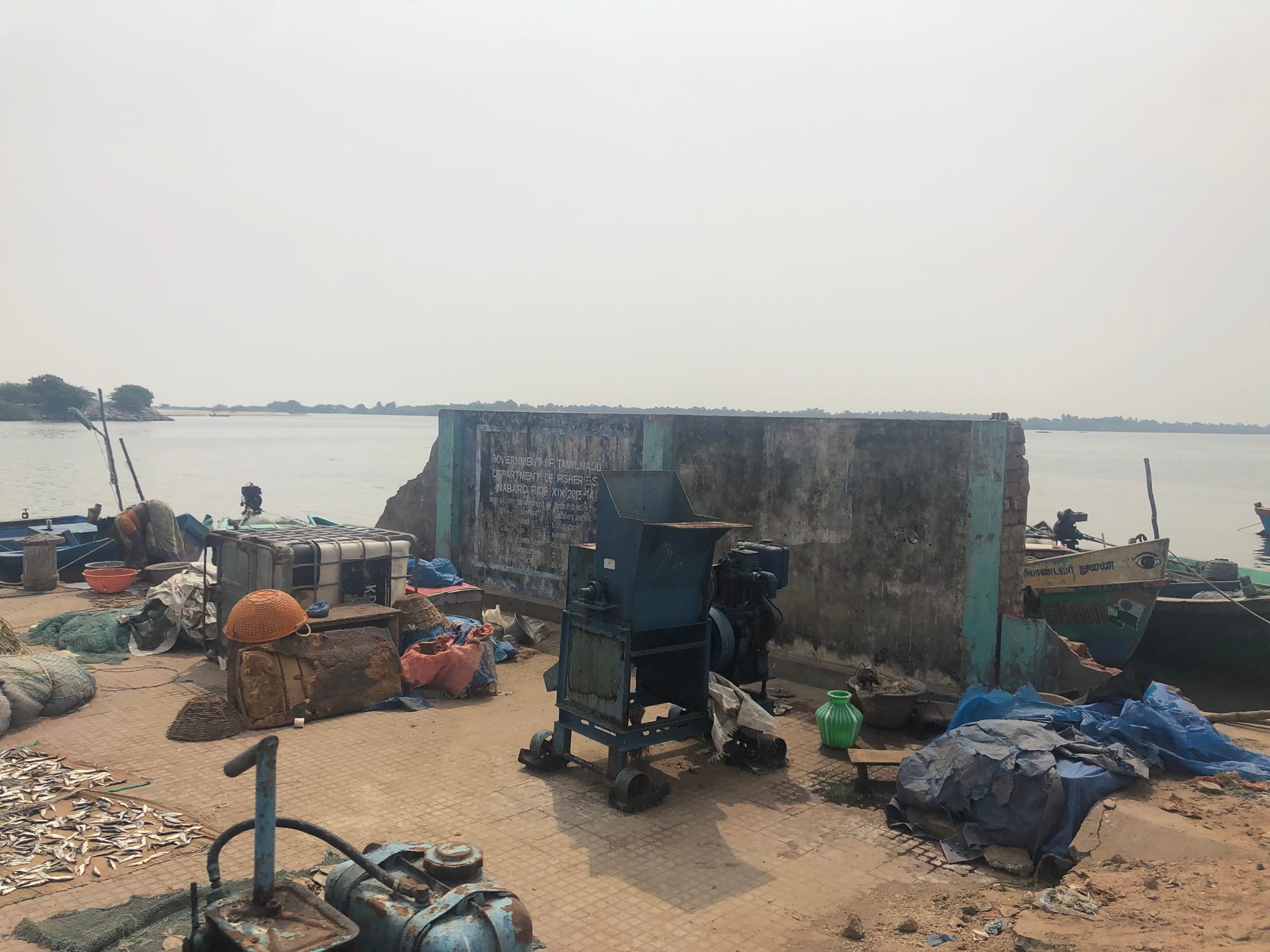
The resilience and dedication of the fisherwomen of Annankoil is truly admireable. Despite numerous challenges, they work tirelessly to support their families and improve their communities. However, their resilience often comes at a significant cost to their own well-being, as they frequently compromise their own needs for the sake of others. This self-sacrifice must not be necessary. It is clear that systemic change is needed. Policymakers must prioritize the needs of fisherwomen, implement policies that promote gender equality, and provide the essential support they deserve to ensure that their well-being is no longer jeopardized. Equal opportunities and resources should be available to all members of the fishing community, regardless of gender.
Nithila’s story is just one of many. Throughout Cuddalore district, there are countless other fisherwomen who share similar struggles and aspirations. Their resilience and determination deserve recognition and support. It is time for policymakers to listen to their voices and take meaningful action to create a more equitable society for all fisherwomen and their families.
Sara Grambs is an International Development Studies student at the University of Amsterdam. As a social justice activist and political scientist, she is committed to the overarching motto of the SDGs of “leaving no-one behind“ and "putting the last ones first“. As women are globally affected most, she uses a feminist gendered perspective to research the lived experiences of fisherwomen.
Dr. C. Sathiya holds a Ph.D Oceanography and Coastal Area Studies from Alagappa University, Thondi Campus. She supported this research as an assistant and interpreter, contributing to its success.
Recommended Readings
- Azmi, F., & Lund, R. (2022). Women adjusting their sails: The role of motility in women’s livelihood strategies in a fishing village in Tamil Nadu, India. Singapore Journal of Tropical Geography, 43(3), 347–362. https://doi.org/10.1111/sjtg.12449
- Rao, N. (2022, March 4). Puli gets by on shells, scales, heads and tails. People’s Archive of Rural India. https://ruralindiaonline.org/en/articles/puli-gets-by-on-shells-scales-heads-and-tails/
- Rao, N. (2023, February 13). Women fish-cutters: Pushed into the shadows. People’s Archive of Rural India. https://ruralindiaonline.org/en/articles/women-fish-cutters-pushed-into-the-shadows/
- Rao, N., & Silver, A. (2022, March 8). Veni’s story: ‘Becoming a bold lady.’ People’s Archive of Rural India. https://ruralindiaonline.org/en/articles/venis-story-becoming-a-bold-lady/
- Hapke, H. M., & Ayyankeril, D. (2004). Gender, the work‐life course, and livelihood strategies in a South Indian fish market. Gender, Place & Culture, 11(2), 229–256. https://doi.org/10.1080/0966369042000218473
